Flamecraft is a game about being a “Flamekeeper,” a kind of wrangler of teeny-cute dragons whose job, according to the rulebook, is to find ideal homes for them and assist them in their Flamecraft, i.e. making bits and bobs for the town. In reality, you run a sort of points sweatshop for these dragons. You move them around willy-nilly to suit your point-accumulating needs and make them produce enchantments for you until you stand victorious on the backs of the tiny dragons as the most reputable dragon exploiter in town.
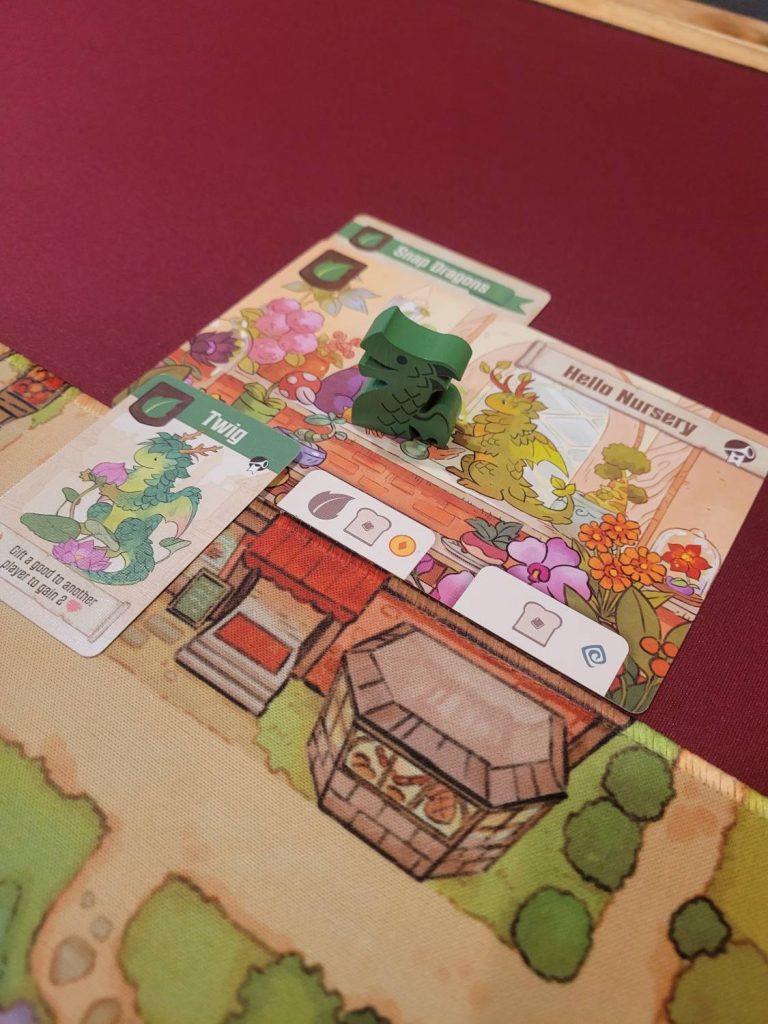
I kid, but here’s how Flamecraft works.
Essentially, this is a worker placement game where you try to fulfill contracts. Lots of contracts. There’s a constantly replenished selection of contracts or recipes for you to chase after, which require combinations of the game’s six resources and give you point and resource rewards when you complete them. Mostly, you’re going to be going after these for points, though you have end-game recipes and during-the-game recipe cards in your hands called Fancy Dragons that you can also do to gain points. There are other ways to pick up the occasional point or two, but most of the time, you’re going to be completing recipes (which are called Enchantments in game parlance).
On your turn, you move your pawn to a shop, and you will choose between completing a contract that matches the suit of the shop, getting points, and activating any dragons that work at the shop, or you will choose to get a boatload of resources. The latter involves getting a resource for every symbol present on completed contracts that were tucked under the shop, the dragons themselves, and the suit of the shop. You also can add dragons to the shop, which makes it produce more in the future and gives you a little benefit. And, if the shop gets filled with three dragons, a new shop enters the game, making for an eventual possible total of 14 in a 3-4 player game, and 12 in a 1-2 player game.
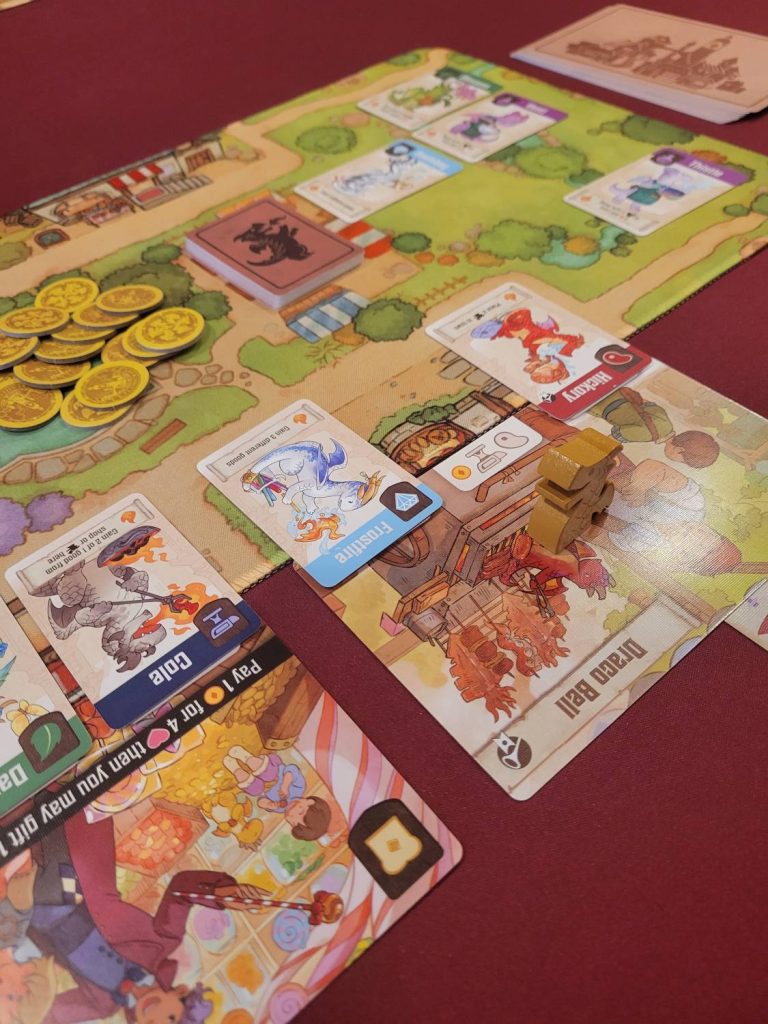
You will power up the worker placement spots as the game goes along, all in service of getting them points. There is an additional mechanism where if you visit a spot where another player’s dragon pawn is, you have to pay them a resource. However, given the nature of the contract flop and how many available spaces there are, there is very little incentive to go where someone else is unless you’re trying to help that player catch up. The game ends once either the available dragons or the contracts run out. The most points wins.
This game has some of the most adorable illustrations I’ve seen in a board game. Each of these dragons is like a little stuffed animal, and the world is filled with a cast of diverse and richly illustrated shopkeepers. Big kudos to the art team of illustrator Sandara Tang and graphic designer Manny Vega for making something that is both charming and easy to read.
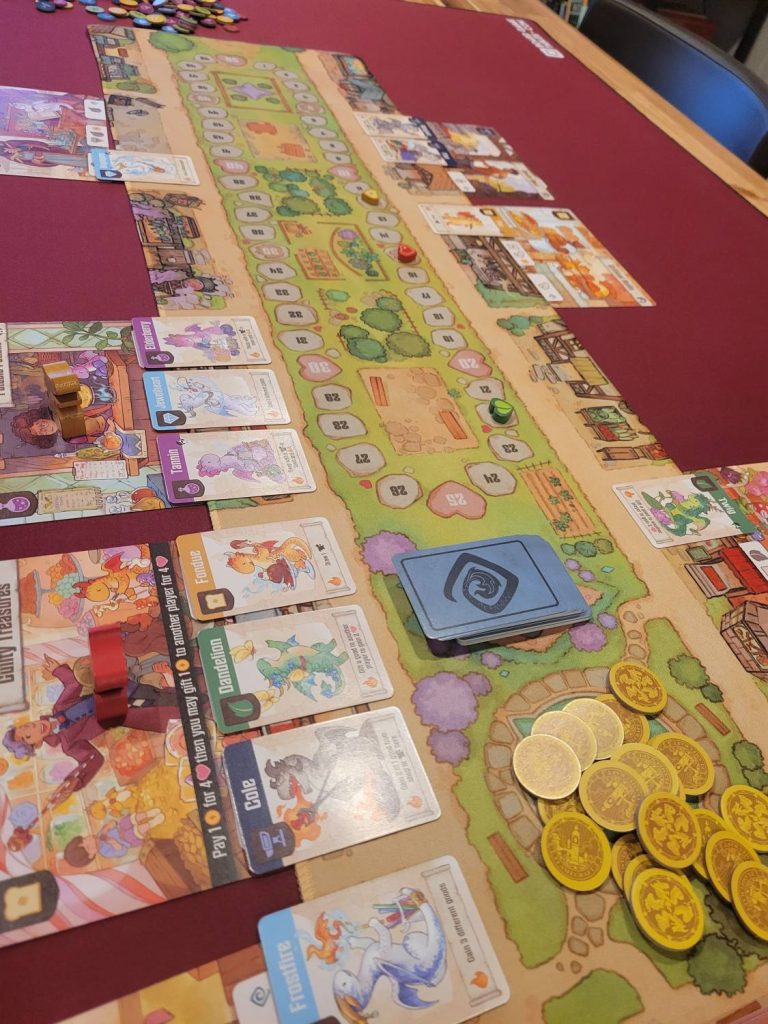
What is unfortunate about Flamecraft is that the personality of its artwork does not carry over into the game’s mechanics. You’re farming these dragons for as many resources as you can get, and then turning them into points. That fundamental loop is about the extent of what the game has in store for you, and because it offers so many choices about how you’re going to get your recipes together, the competition that I look for in a game isn’t really present.
Having a lot of choices about what to do in a game, can’t really be that bad, right? Well, yes and no. Having myriad options for getting what you want to do done makes it so every turn has forward momentum, propelling you toward a goal you’re looking to accomplish. But the same goes for everyone else, and because the valence of the decisions is balanced, you don’t ever get the sense that you’re playing “better” or “worse” than any of the other players, except when someone gets the occasional lucky contract draw that makes it so they can leap ahead because they had the right combination of leftover resources. It’s group progression, whether you want it or not. Everything is balanced, which means it’s pretty tough to make a bad decision, you have to work at it. The problem with this is that each game of Flamecraft feels pretty much the same way that every other game of Flamecraft feels—a very meandering race to get some points by fulfilling contracts.
But, for those looking for a game for fans of cute dragon fantasy art who don’t enjoy high-intensity slugfests (like I do), Flamecraft might be just what the dragon sweatshop ordered.


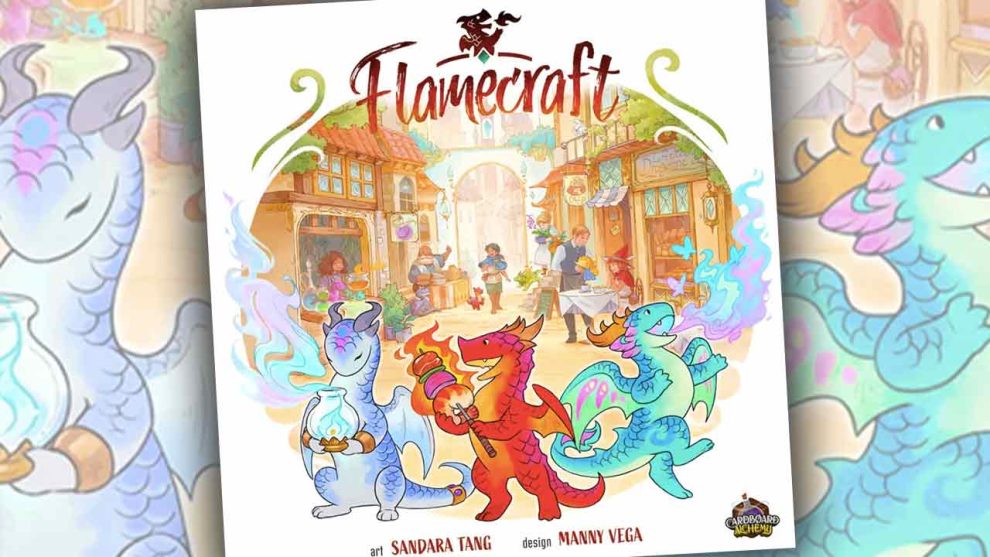

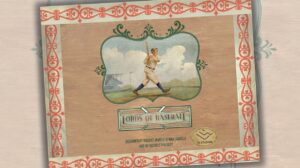
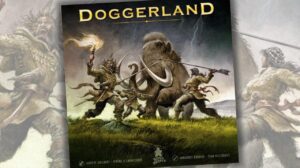
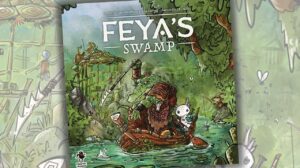
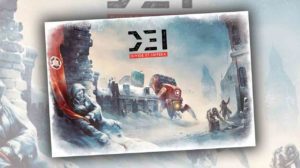




Add Comment